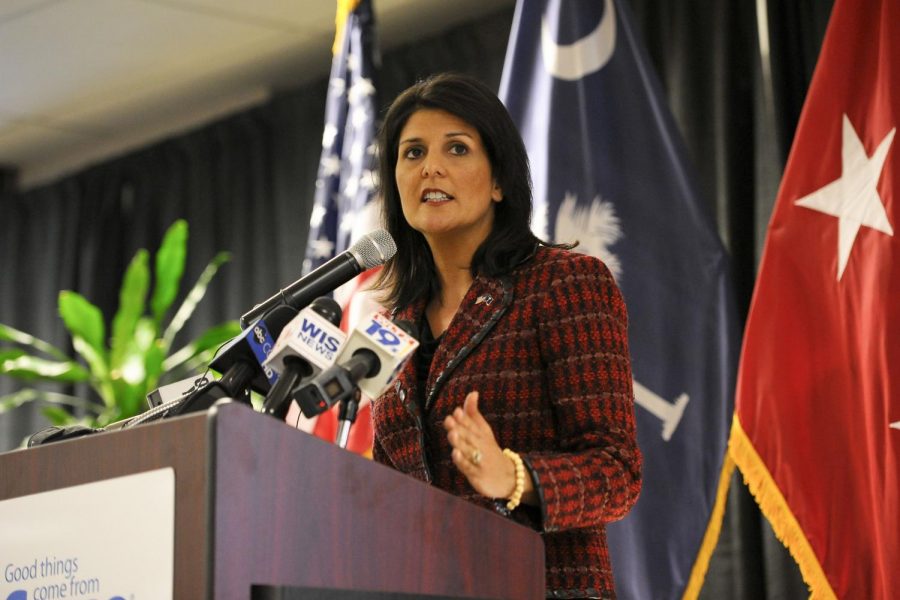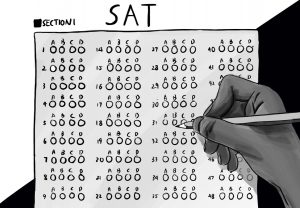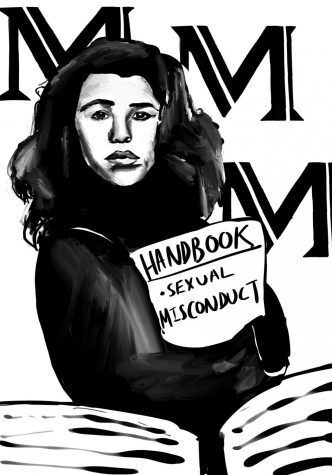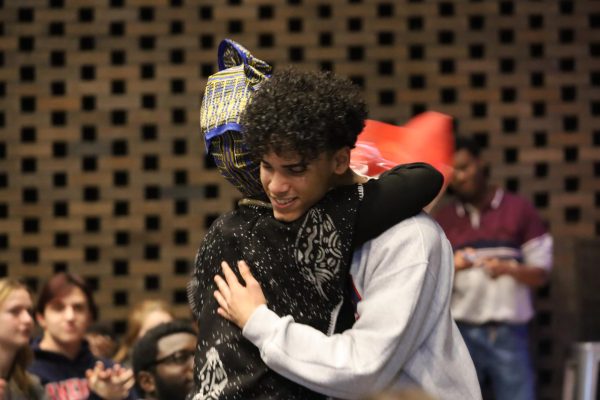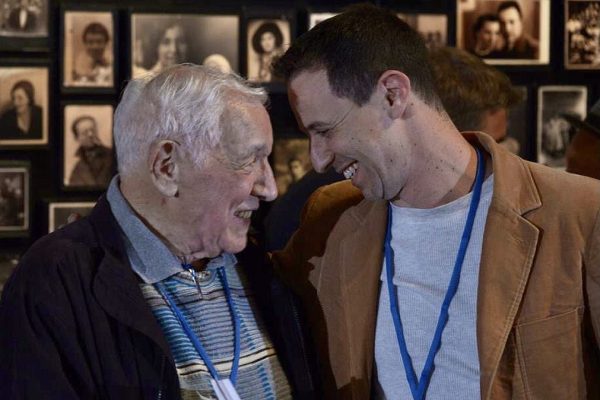Haley resigns, leaves questions about future
Nikki Haley (above) speaking at a conference. She is set to step down from her position as the United States Ambassador to the United Nations at the end of this year.
October 25, 2018
Nikki Haley, America’s ambassador to the United Nations (UN), announced on Tuesday, Oct. 9, in an unexpected move with unclear motives, that she will officially resign at the end of the year.
“I‘m a believer in term limits,” Haley said at a press conference as a form of explanation as she prepared to leave behind her two years as UN ambassador. “I think you have to be selfless enough to know when you step aside and allow someone else to do the job.”
Unlike many other Trump administration officials, like Steve Bannon, Haley was not forced out by the administration; on the contrary, Trump praised Haley at the meeting at the White House Tuesday to announce her departure.
“She has done a fantastic job and we’ve done a fantastic job together,” Trump said. “We’ve solved a lot of problems and are in the process of solving a lot of problems.”
Haley was one of the most influential and hawkish administration members shaping President Trump’s foreign policy. Her UN tenure included criticizing Russia for its support of Syrian President Bashar al-Assad and championing human rights— even when Trump did not. She served this atypical administration as a typical mainstream Republican.
However, she stood firm with the administration as often as she stood apart from it. She was a hardliner when it came to Iran: last Dec., she stood in front of a supposedly Iranian-made missile at the UN as she claimed that Iran had delivered weapons to Shiite fighters in the Yemeni Civil War. And when countries condemned America’s decision to move Israeli embassy to Jerusalem from Tel Aviv, Haley declared that the US would “take names of those who vote to reject Jerusalem recognition.”
Haley also headed America’s increasing withdrawal from the UN: she pulled the US out of the organization’s Human Rights Council, as well as the United Nations Relief and Works Agency (which administers aid to millions of Palestinian refugees).
Even as she toed the line with the Trump administration on a multitude of issues, she spoke for mainstream conservatism on as many others. Who, now, will replace her as that voice? And who will replace her as UN ambassador? These questions need to be urgently answered as Haley prepares to depart.
Haley’s departure has also fueled speculation that she plans to run for president; those presidential ambitions are well known in Washington. There is also speculation that she wrote the recent op-ed published anonymously in the New York Times about the “resistance” within the Trump administration.
Haley is well set up for a run; She’s the daughter of Indian immigrants in a party led by white men, she’s telegenic and collected, she’s spent two years striking a different tone than the rest of the administration, especially her hardline views on Russia.
Haley has told reporters that she wouldn’t run in 2020.
But she has said nothing about a 2024 run.




